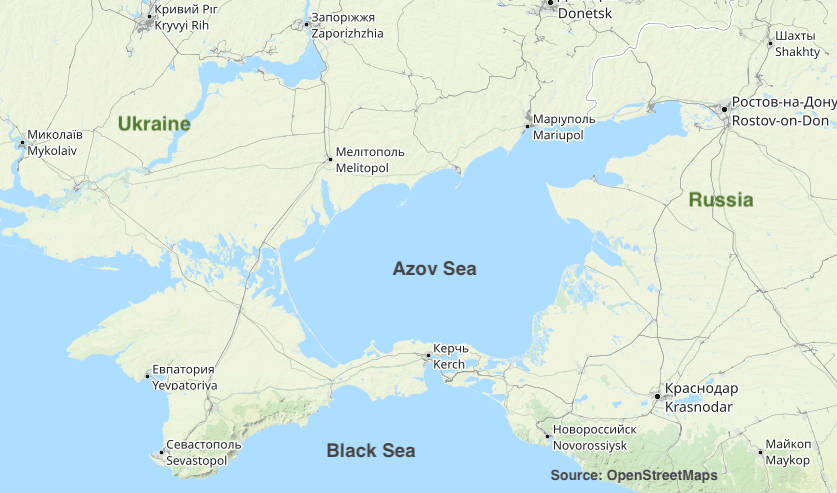Kavkaz, Russia (PortSEurope) August 7, 2022 – The Russian port of Kavkaz (Caucasus), strategically located in the Kerch Strait that connects Azov Sea with the Black Sea, continues to report lower cargo figures. During the first seven months of this year, it handled 12.5 million tonnes of cargo, a decrease of 22% compared to the same period of 2021. In 2021, Kavkaz processed 84% less cargo than in 2020.
The offshore transshipment area of the port handled 5.25 million tonnes or 27% less than in January-July last year.
Exports through the port increased by 18% to 1.5 million tonnes. Imports, usually not handled by this port, increased 4.3 times and reached 145,000 tonnes. This is attributed mostly to parallel import of sanctioned goods via Turkey.
Grain handling decreased by 26% to 5.9 million tonnes, oil products were 26% less to 3.8 million tonnes, sulphur was 89% less to 156,000 tonnes. Coal transshipment increased by 12% to 1.4 million tonnes.
In the 2021/22 season Kavkaz ranked second with 9 million tonnes of grain products exported, including wheat – 7.6 million tonnes, which represented 84% of the cargo handled by the port. Smaller volumes were shipped from barley – 767,000 tonnes and peas – 359,000 tonnes.
Investment in Russian ports
Despite bold announcements of investment in ports and related multimodal infrastructure, the reality for western sanctions-hit Russia is that its ports are in a very difficult situation. With the exception of grain, oil and oil products, Russian ports face stagnated exports and reduced imports.
Sanctions against Russia for its invasion in Ukraine have practically removed the country from the global logistics map. All that remains is trading with countries like Iran, Syria, the former Soviet republics in Central Asia, Turkey. Export and imports continue from China and India.
Note: Russian state statistics, operating under war time and western sanctions restrictions, provides figures that cannot be independently verified. According to logistics experts, export volumes are inflated while import ones are artificially decreased.
More PortSEurope news about the Port of Kavkaz
More PortSEurope news about the Ukrainian crisis
Copyright (C) PortSEurope. All Rights Reserved. 2022.

